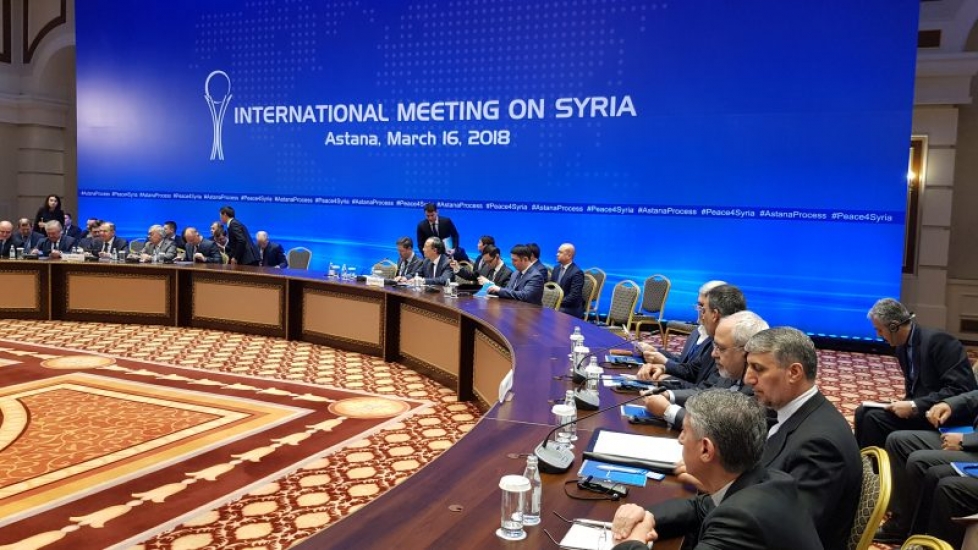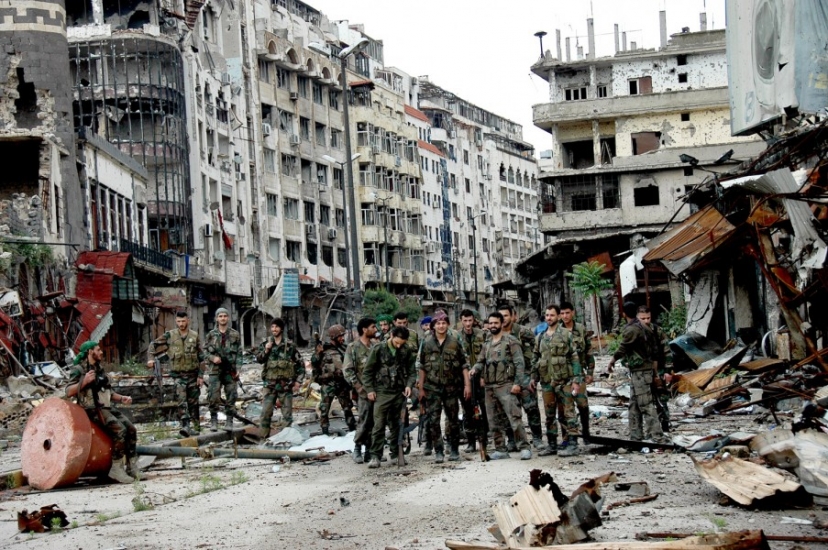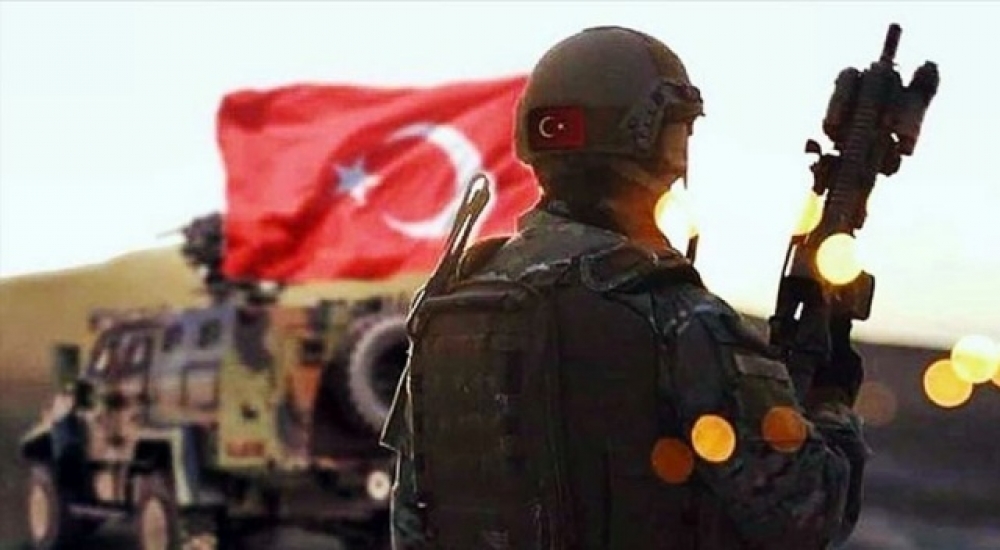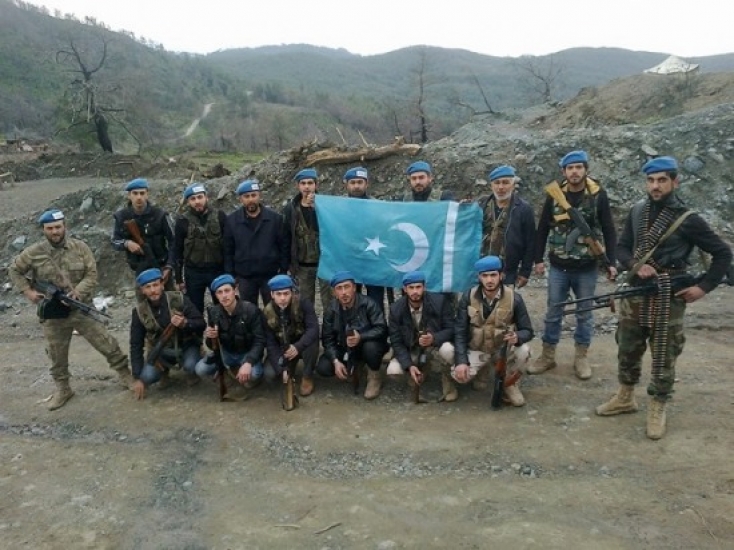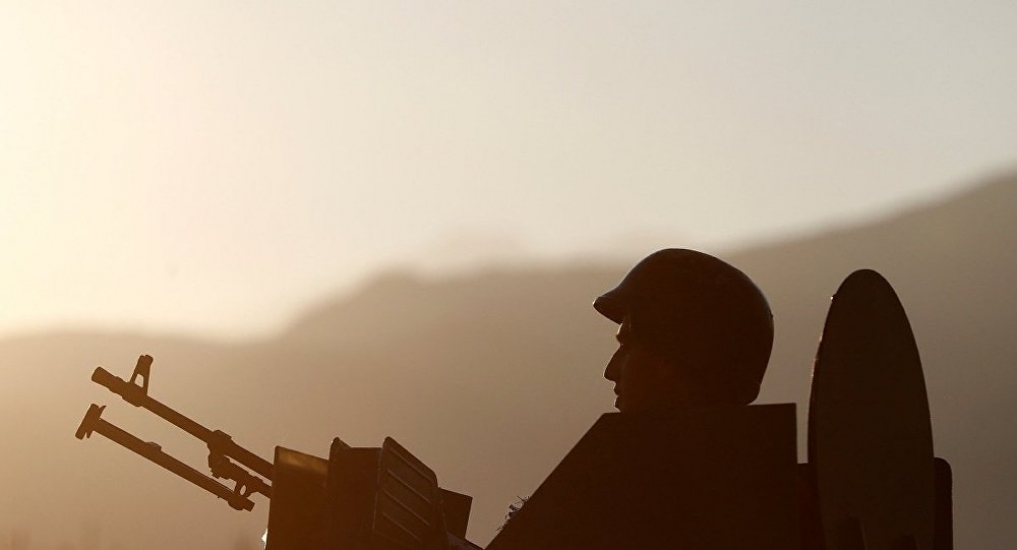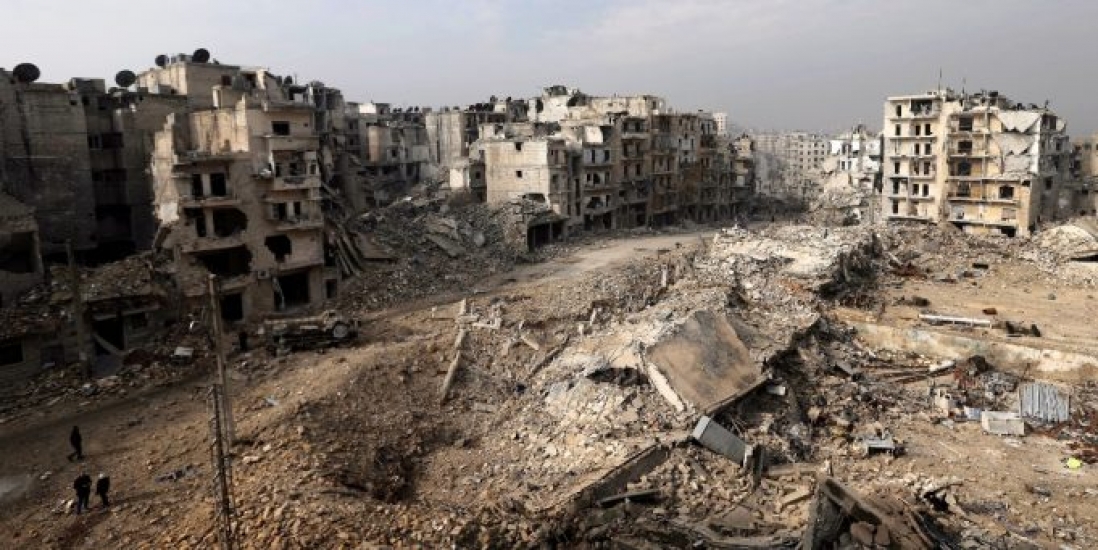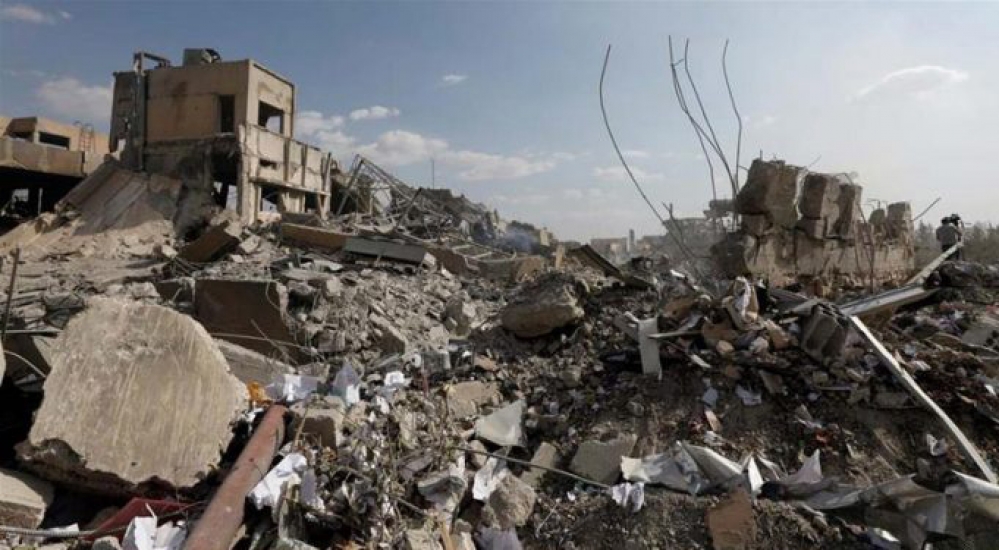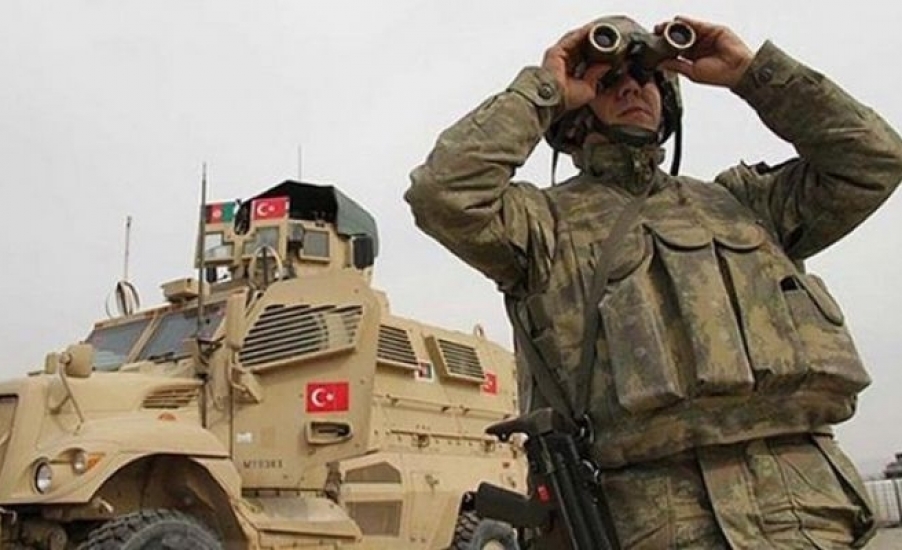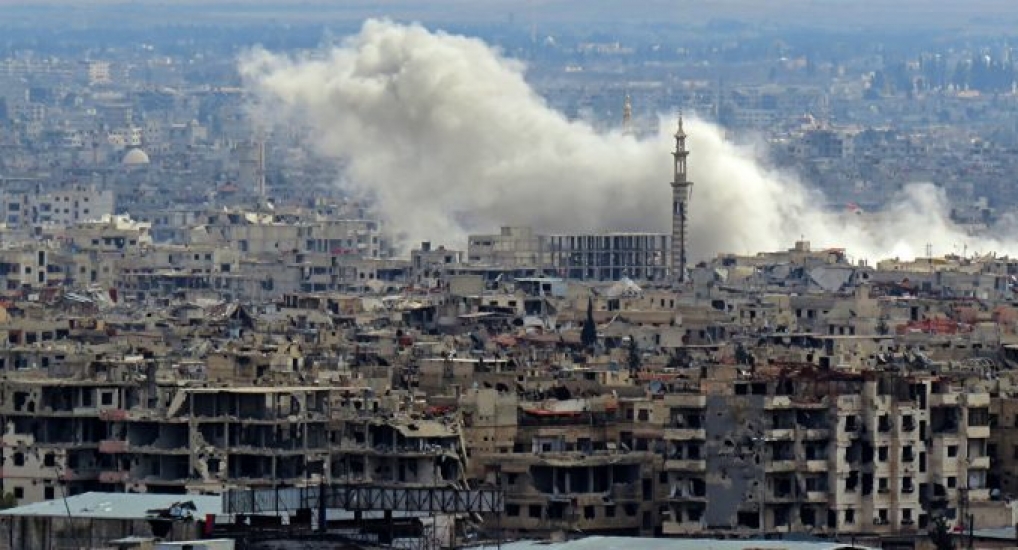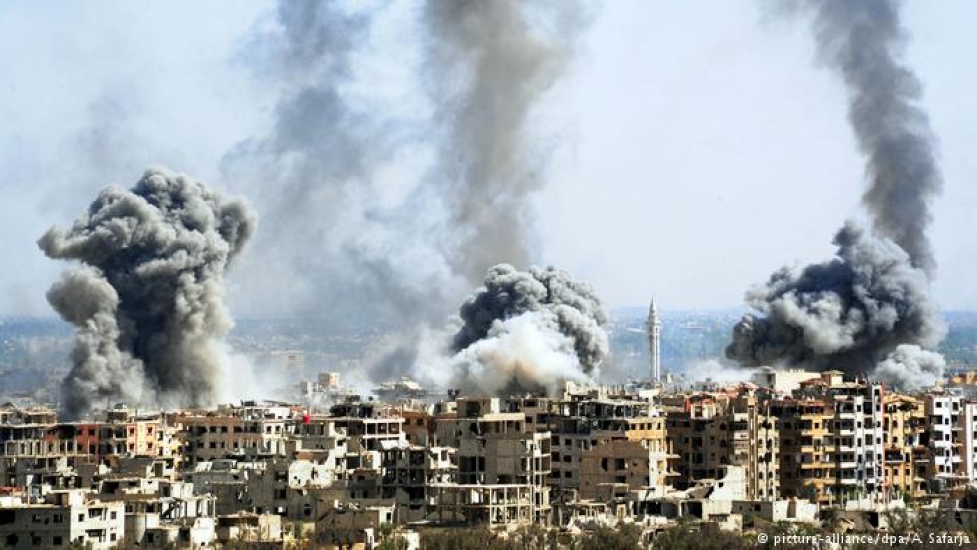Maps
The Turkish, Russian and Iranian Military Checkpoints Established in the Idlib Region as Part of the Astana Process
The Turkish, Russian and Iranian Military Checkpoints Established in the Idlib Region as Part of the Astana Process
The Russian Defence Ministry announced that as part of the Astana process, Turkey, Iran and Russia have established observation posts aimed at de-escalation. The Ministry published a map showing the observation posts constructed by the countries. As part of this, in Idlib and its surroundings, Turkey has 12, Russia has 10 and Iran has established 7 observation posts. Iran’s observation posts are interestingly mainly around Aleppo city.
Regime Forces Have Taken Control Over Northern Homs
Regime Forces Have Taken Control Over Northern Homs
The Russia and Iran-backed Assad regime had started an offensive on the rebel-held territory in northern Homs at the same time as the offensive on Yarmouk Camp, after capturing Eastern Ghouta and Eastern Qalamoun from opposition forces.
The Syrian opposition in northern Homs has sat on the negotiation table with the Russians after which they came to an agreement to withdraw to rebel-held territories in Idlib and Aleppo. Therefore, the area has falled into the hands of the Assad regime without much clashes.
The 592 square kilometers of territory in northern Homs was besieged for 5 years. The area houses between 200-250 thousand Syrians, among which a large number of Turkmens. More than 35 thousand civilians have been forced to evacuate to rebel-held territories from northern Homs.
Turkish Army Established its 12th Observation Post in İdlib
Turkish Army Established its 12th Observation Post in İdlib
The Astana process, started by the guarantors of Russia, Turkey and Iran, aims at decreasing the clashes in the Syrian conflict and thus starting the process of political transition in the conflict. As part of the Astana process, the sides have agreed upon establishing de-escalation zones of which Idlib is the most important one.
As part of this process, the TAF has established the last observation post in Idlib. The new observation post is in the village of Ishtabrak, which lies to the southwest of Jisr al Shughour. The established observation posts by the TAF are: three in Daret Izze, Anadan, Al Eis, Tel Tukan, Surman, Zeytunah, Morek, Rashidin, Zawiyah and in Ishtabrak. The TAF has thus finished the construction of 12 observation posts in the de-escalation zone of Idlib.
The chronology of the construction of the 12 observation posts is as follows:
1- Salva village near Dana on 13 October 2017 – Observation Post No. 1
2- Samaan village (Takle) near Darat Izze on 23 October 2017 – Observation Post No. 2
3- Aqil Mountain near Darat Izze on 19 November 2017 – Observation Post No. 3
4- Al Eis near Al Hader on 5 February 2018 – Observation Post No. 6
5- Tal Tukan village near Saraqib on 9 February 2018 – Observation Post No. 7
6- Surman Village near Maarat al Numan 15 February 2018 – Observation Post No. 8
7- Anadan (Tal Tamurah) in West Aleppo on 17 March 2018 – Observation Post No. 4
8- Zeytunah in southwestern Idlib on 3 April 2018 – Observation Post No. 12
9- Morek (Tal as Sawwan) in rural Hama on 7 April 2018 – Observation Post No. 9
10- Rashidin in Western Aleppo on 9 May 2018 – Observation Post No. 5
11- Zawiyah in rural southern Idlib on 14 May 2018 – Observation Post No. 10
12- Ishtabrak in southwestern rural Idlib on 16 May 2018 – Observation Post No. 11
The Turkmen Villages Around the Euphrates River and the Suleyman Shah Tomb
The Turkmen Villages Around the Euphrates River and the Suleyman Shah Tomb
Turkish Army Established its 11th Observation Post in İdlib
Turkish Army Established its 11th Observation Post in İdlib
The Astana process, started by the guarantors of Russia, Turkey and Iran, aims at decreasing the clashes in the Syrian conflict and thus starting the process of political transition in the conflict. As part of the Astana process, the sides have agreed upon establishing de-escalation zones of which Idlib is the most important one.
As part of this process, the TAF has established its 11th observation post in Idlib. The new observation post lies to the West of Khan Sheikhoun, in Zawiyah which lies in the Ghab plain. As of this moment, the established observation posts are: three in Daret Izze, Anadan, Al Eis, Tel Tukan, Surman, Zeytunah, Morek, Rashidin and Zawiyah. The TAF is expected to construct a total of 12 observation posts in Idlib. Therefore, the TAF continues scouting for appropriate locations to construct the remaining posts.
The Regime’s Latest Advance in Southern Damascus
The Regime’s Latest Advance in Southern Damascus
After the Russian and Iran-backed Assad regime took over control of the previously held opposition-controlled areas of Eastern Ghouta and Eastern Qalamoun, the regime has launched an offensive to take control over Yarmouk Camp, which is partly under the control of Daesh. The regime has made serious progress in its assault.
In the northern part of Yarmouk Camp, the area controlled by HTS and other rebel groups has been evacuated as per the deal closed on the 29th of April with the regime, which oversees a swap with the besieged Shia militias and people of Fuah and Kafaryah in Idlib. An estimated 5000 rebel fighters from the area have moved to Idlib and the Euphrates Shield region.
The Assad regime continues its offensive after this evacuation deal on the Daesh-held territory of Yarmouk Camp. The regime forces aim at splitting the Daesh-held territory into two parts, like they did in Eastern Ghouta, further eroding the resistance and coordination of the Daesh fighters. The regime aims at controlling these areas in this way. The Russians back this offensive with intensive air support which continues to lead to a loss of civilian life in the area.
The Latest Situation in Southern Damascus
The Latest Situation in Southern Damascus
After the Russian and Iran-backed Assad regime took over control of the previously held opposition-controlled areas of Eastern Ghouta and Eastern Qalamoun, the regime has launched an offensive to take control over Yarmouk Camp, which is partly under the control of Daesh. The regime has made serious progress in its assault.
In the northern part of Yarmouk Camp, the area controlled by HTS and other rebel groups has been evacuated as per the deal closed on the 29th of April with the regime, which oversees a swap with the besieged Shia militias and people of Fuah and Kafaryah in Idlib. An estimated 5000 rebel fighters from the area have moved to Idlib and the Euphrates Shield region.
The Assad regime continues its offensive after this evacuation deal on the Daesh-held territory of Yarmouk Camp. The regime forces aim at splitting the Daesh-held territory into two parts, like they did in Eastern Ghouta, further eroding the resistance and coordination of the Daesh fighters. The regime aims at controlling these areas in this way. They have been successful so far as they have captured the Hajer Al Aswad district in Yarmouk Camp from Daesh, resulting in a substantial loss of territory for Daesh.
The Russians back this offensive with intensive air support which continues to lead to a great loss of civilian life in the area.
Turkish Army Established its 10th Observation Post in Idlib
Turkish Army Established its 10th Observation Post in İdlib
The Astana process, started by the guarantors of Russia, Turkey and Iran, aims at decreasing the clashes in the Syrian conflict and thus starting the process of political transition in the conflict. As part of the Astana process, the sides have agreed upon establishing de-escalation zones of which Idlib is the most important one.
As part of this process, the TAF has established its 10th observation post in Idlib. The new observation post is in Rashidin in western Aleppo. As of this moment, the established observation posts are: three in Daret Izze, Anadan, Al Eis, Tel Tukan, Surman, Zeytunah, Morek and Rashidin. The TAF is expected to construct a total of 12 observation posts in Idlib. Therefore, the TAF continues scouting for appropriate locations to construct the remaining posts.
The Lates Situation in the Clashes Between the YPG/SDF and DAESH in Abu Kamal
The Lates Situation in the Clashes Between the YPG/SDF and DAESH in Abu Kamal
The TAF and its FSA allies had started the Olive Branch operation, leading to the YPG/SDF halting its operations against Daesh in rural Deir ez Zor. Reinforcements from militias active in this region were sent to Afrin for its defense.
As of the 1th of May 2018, the YPG/SDF has restarted its operations against Daesh in the region. The operation is said to be jointly coordinated with the Iraqi army and its aim is to eliminate Daesh completely from the region. The US has published a statement stating that a military operation to remove Daesh from Syrian lands has started and that they will protect their allies on the ground. The statement includes the clause that “The Assad regime or Iranian-backed forces will not be able to exploit the lands taken from Daesh”.
As part of this operation, Coalition airplanes continue to strike Daesh elements in the area, while the YPG seeks to establish a foothold to prepare its advance into Daesh-held territory in the eastern banks of the Euphrates river. The YPG as of today is at a 4 km distance from Daesh-held Baghuz Tahtani to the east of the Euphrates river.
YPG/SDF Starts a New Offensive Against Daesh
YPG/SDF Starts a New Offensive Against Daesh
The TAF and its FSA allies had started the Olive Branch operation, leading to the YPG/SDF halting its operations against Daesh in rural Deir ez Zor. Reinforcements from militias active in this region were sent to Afrin for its defense.
As of the 1th of May 2018, the YPG/SDF has restarted its operations against Daesh in the region. The operation is said to be jointly coordinated with the Iraqi army and its aim is to eliminate Daesh completely from the region. The US has published a statement stating that a military operation to remove Daesh from Syrian lands has started and that they will protect their allies on the ground. The statement includes the clause that “The Assad regime or Iranian-backed forces will not be able to exploit the lands taken from Daesh”.

